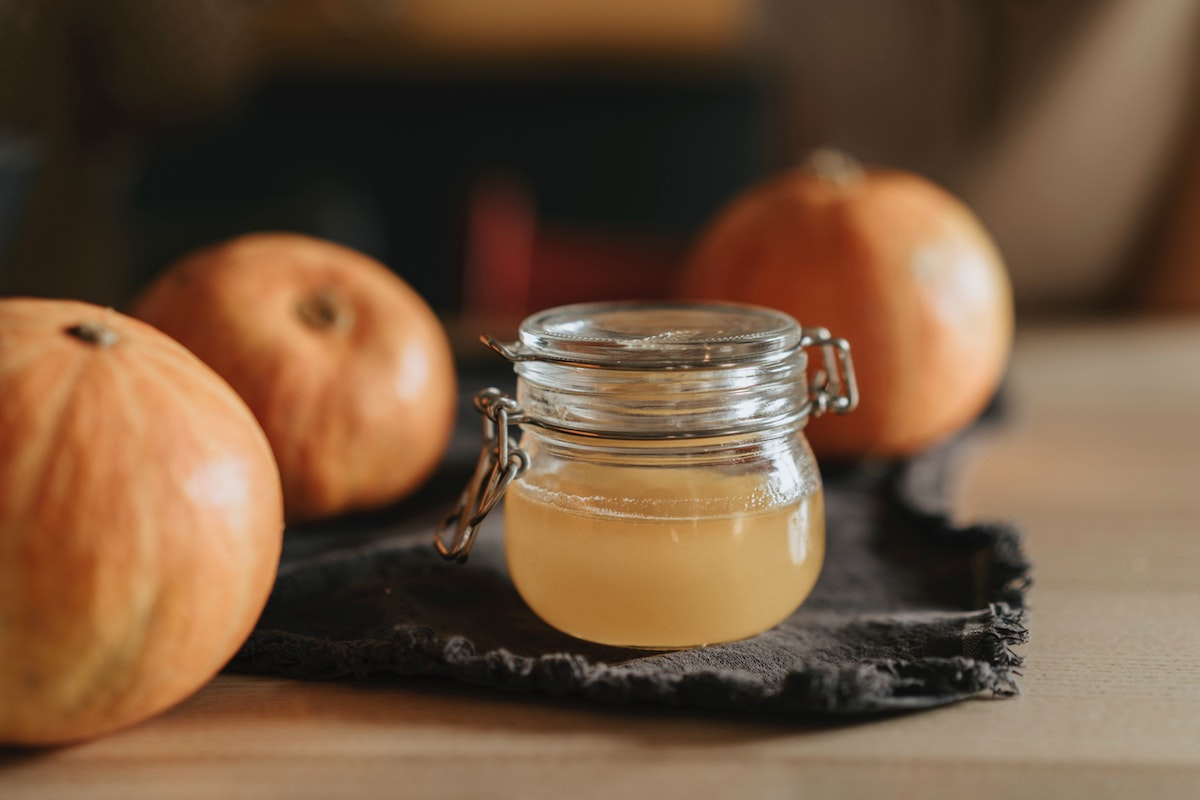
Wanting to look and feel your best is natural. Feeling this way allows you to live life to the fullest, nail a workout, focus on the job, and sleep better. Thanks to the internet and especially social media, there is no shortage of ideas on achieving longevity and enjoying life. One such way is consuming apple cider vinegar daily.
The pantry staple for salad dressings and marinades can purportedly help you lose weight, manage blood sugar, and improve heart health. Kim Kardashian called a raw version of Bragg Apple Cider Vinegar a “miracle ingredient.” No shame if you loved yourself a good Keeping Up With the Kardashians marathon. However, taking medical advice from a Kardashian isn’t recommended, and not every social media fad is a good one.
Believe it or not, there is some science behind the purported benefits of apple cider. Still, you’ll proceed cautiously, especially if you are living with certain conditions. Here’s what to know about reported apple cider vinegar weight loss benefits and more.

What are apple cider vinegar benefits (and myths) to know about?
Before getting into the health benefits of apple cider vinegar, let’s discuss the composition. Knowing what’s in ACV can help you understand why the ingredient does – or doesn’t — stand up to the hype.
Apple cider vinegar is a fermented food. Like other fermented foods, ACV is made by fermenting sugar, in this case, from apples. The process turns the famous fruit into the primary active ACV ingredient — and the holy grail of many health claims — acetic acid. Acetic acid is also why apple cider vinegar has such a strong taste — and why you may cringe at the thought of doing daily shots of the ingredient.

What does drinking apple cider vinegar do?
Honestly? Research on apple cider vinegar benefits is limited, and more is needed before doctors declare TikTok is on to something. However, some research on ACV points to potential benefits, including blood sugar control, weight loss, and heart health. Let’s dig in.
Apple cider vinegar may help with blood sugar
Controlling your blood sugar is vitally important. Chronically uncontrolled high blood sugar can develop into diabetes. Is taking a shot of apple cider vinegar before or during meals the answer? Some studies indicate it may help. A 2019 narrative review indicated that consuming acetic acid, the main ingredient in ACV, with carb-rich meals could positively impact blood glucose levels. A 2021 review found apple cider vinegar could help with blood sugar in adults. The authors of both studies noted the need for more studies. An older 2004 study also found that ACV might help with insulin resistance in individuals with type 2 diabetes.
Note these findings don’t mean you should swap apple cider vinegar for Ozempic or insulin if you have diabetes or prediabetes. However, you may wish to discuss apple cider vinegar consumption with your healthcare team.
Weight loss claims and apple cider vinegar
Pixie dust-style weight-loss solutions are everywhere, including in fad diets and on the Internet. While ACV isn’t pixie dust, some research shows that consuming apple cider vinegar for weight loss may offer some benefits. Research is mixed and limited, though. For example, one study found that participants who consumed ACV as part of a meal reported appetite suppression for two hours afterward. However, more recent research from 2022 didn’t find this link.
Diet, exercise, stress reduction, and medication can also help lose weight. Discuss your options with a provider.
Can ACV improve heart health?
ACV might help with heart health, but the research isn’t robust enough for definitive declarations as with blood sugar and weight loss claims. A 2020 review of animal and human studies indicated that ACV may help with cholesterol. One from 2021 of human-only studies had similar findings. Again, this research doesn’t conclude ACV is an alternative to lifestyle medications, such as dietary tweaks and medication to control cholesterol.
Life hack: Use apple cider vinegar as a disinfectant
Not interested in throwing back ACV shots? You can still use a shot of apple cider vinegar to benefit your health without consuming the ingredient. Vinegar is often used as a natural disinfectant and can keep food from spoiling. ACV may help prevent E. coli from growing on your favorite dishes.
Can I drink apple cider vinegar every day?
In most cases, drinking a tiny bit of apple cider vinegar daily (or something ACV in another way) is harmless and may even benefit people. ACV can erode tooth enamel, affecting dental health, so limit intake to 1 to 2 tablespoons. People with kidney disease or who are on low-potassium diets will want to speak with a provider before consuming apple cider vinegar for any reason. ACV has a high potassium content and could harm people living with certain conditions.
Let’s be honest: ACV has a strong taste, and you may not be able to acquire a tolerance for this fermented liquid. Instead, consider diluting apple cider vinegar with water, which can also reduce tooth enamel erosion risk. Apple cider vinegar can also be consumed as an ingredient in dressings and marinades instead.
Remember, your body may react differently to apple cider vinegar than your friend’s. Monitor how your apple cider vinegar consumption makes you feel, and stop and speak with your provider if you’re experiencing side effects, like GI discomfort.




